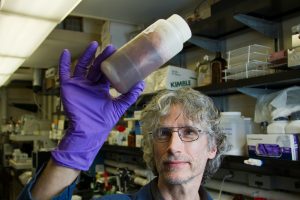-
The biotech industry welcomes PhDs from most life sciences, physical sciences, and engineering disciplines, not just those with a degree titled “biotechnology.”
-
The most common and in-demand backgrounds are in biology, biochemistry, biomedical sciences, chemical engineering, and bioinformatics, but fields like statistics, food science, and environmental science are also highly relevant.
-
PhDs can work in research, clinical, regulatory, manufacturing, business, and data science roles, depending on their expertise and interests.
- This week’s upload of representative jobs offer a wide range of skill applications, from Chief Scientific Offer to brand insights to project management, all within biotech and related scientific firms. You can find this cluster of opportunities on our SmartJobs page here.
- As we note below, the global opportunities in biotech continues to outpace the US, offering a range of opportunities for both domestic and foreign PhDs and graduate students. The global biotechnology industry had total employment reaching 13.2 million and 740,000 new jobs created in the past year, and we are just getting started in many of these fields.
Here is some helpful information to consider.
- Why Types of PhDs Can Work in Biotech?
Biotechnology is a highly interdisciplinary field, and the biotech industry actively recruits PhDs from a wide range of scientific and engineering backgrounds. Here’s an overview of the types of PhDs that are well-suited for careers in biotech, along with examples of relevant roles and sectors.
Common PhD Fields in Biotech
-
Biotechnology: Directly related, with training in molecular biology, genetic engineering, bioprocessing, and applied biological sciences1.
-
Biology (including subfields like molecular biology, cell biology, microbiology, and genetics): Core disciplines for R&D, genomics, and product development2.
-
Biochemistry: Essential for understanding molecular mechanisms, drug discovery, and metabolic engineering3.
-
Biomedical Sciences: Covers disease mechanisms, therapeutics, and diagnostics relevant to biotech innovation4.
-
Chemical Engineering/Biochemical Engineering: Focuses on process development, scale-up, and manufacturing of biotech products5.
-
Pharmaceutical Sciences: Involves drug development, formulation, and regulatory affairs6.
-
Bioinformatics/Computational Biology: Increasingly important for data analysis, genomics, and systems biology7.
-
Biostatistics: Vital for clinical trials, experimental design, and data interpretation in biotech research8.
-
Food Science/Food Engineering: Relevant for biotech applications in food safety, processing, and agricultural biotechnology9.
-
Environmental Science/Biosystems Engineering: Applies to sustainable biotech, biofuels, and ecological applications.
-
Forest Molecular Genetics: Specialized for plant and agricultural biotech sectors1.
Typical Biotech Roles for PhDs
PhDs from the above fields can work in a variety of roles within biotech, such as:
- Research & Development (R&D) Scientist or Engineer
- Clinical Research Associate or Scientist
- Process Development Scientist
- Quality Assurance/Quality Control Specialist
- Regulatory Affairs Specialist
- Medical Science Liaison
- Business Development/Strategy
- Product Management
- Data Scientist/Bioinformatician10
Global Trends: Growth Amid Regional Variability
-
Global Expansion: The global biotechnology industry continues to grow, with total employment reaching 13.2 million and 740,000 new jobs created in the past year. The sector is projected to maintain a strong compound annual growth rate (CAGR) of 13.6% through 203411.
-
Innovation Hubs: Key global hubs include the USA, India, UK, China, and Germany, with cities like London, New York, San Francisco, San Diego, and Boston leading in innovation and job creation12. India, in particular, is rapidly expanding its biotech startup ecosystem47.
-
Role of Regulation and Infrastructure: International hiring is increasing but is tightly managed due to complex labor laws, IP protections, and regulatory requirements. Companies are using Employer of Record (EOR) solutions to streamline cross-border hiring, especially in regions with strong technical talent and regulatory frameworks13.
-
Sector-Specific Growth: Precision medicine, synthetic biology, and 3D bioprinting are among the fastest-growing biotech segments globally, each driving demand for specialized talent in R&D, production, and regulatory compliance14.
-
Skill Shortages and Talent Gaps: Despite overall growth, the industry faces acute shortages in critical areas such as advanced manufacturing, regulatory affairs, and data science. Companies are increasingly competing for a limited pool of highly skilled professionals, especially in emerging fields like AI-driven drug discovery and gene editing15.
Summary Table: U.S. vs. Global Biotech Employment Trends
| Aspect | United States | Global |
|---|---|---|
| Hiring Trend | Slow, selective, competitive | Overall growth, but regionally variable |
| Layoffs | High in 2023–2024, slowing in 2025 | Some regions expanding, others cautious |
| Key Growth Areas | Manufacturing, regulatory, clinical ops | Precision medicine, synthetic biology, 3D bioprinting |
| Job Market Hubs | Boston, San Diego, San Francisco | USA, India, UK, China, Germany |
| Remote Work | Declining sharply | Limited globally, mostly for non-lab roles |
| Long-Term Outlook | Gradual recovery, strong demand for skills | Continued expansion, talent shortages |
- In summary, any PhD with a strong foundation in biological, chemical, physical, computational, or engineering sciences can find rewarding opportunities in the biotech sector, provided their skills align with the needs of the industry, both here in the US and globally.
Do your research.
- *****
- Are you affiliated with a subscribing university? If not, we now offer individual subscriptions.Go HERE to learn more!

- ***
-


